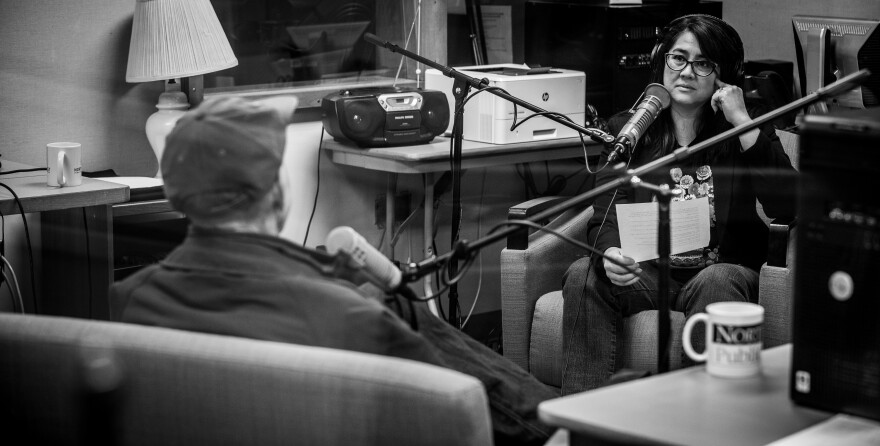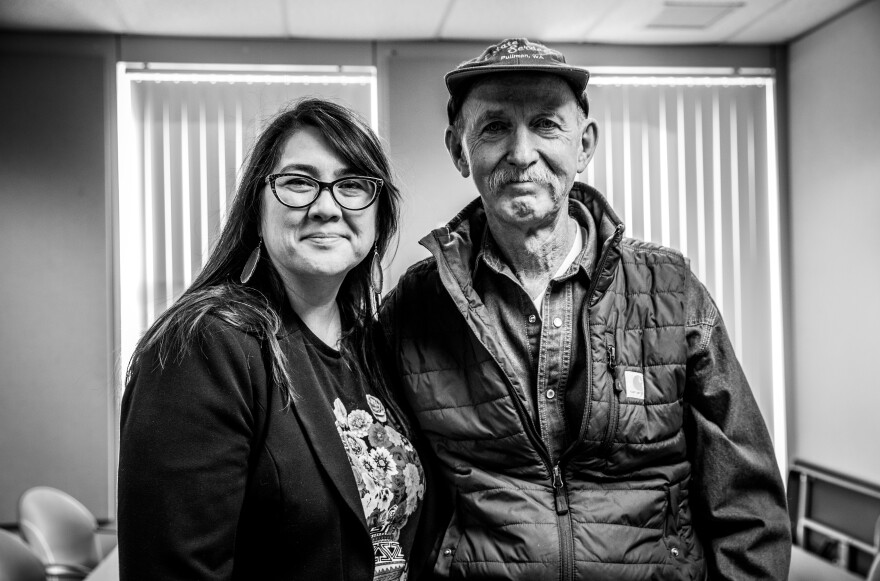Grieving the loss of a loved one is already hard enough. To make matters worse, many people have no idea where to begin when dealing with the material items left behind. Rich Old has worked in estate services for over thirty years and developed a prescription for individuals who find themselves in this likely scenario. To minimize emotional and physical stress, he encourages people to take everything they would like to keep, call a professional and leave the rest to them. In this episode of ‘Traverse Talks’ with Sueann Ramella, Rich Old discusses the misconceptions people have about inheritance and why he started his business to help out.
SUBSCRIBE: Spotify / Apple Podcasts / NPR One / YouTube
Listen
[podcast_episode episode="140371" content="player"]
Conversation Highlights:
You Don't Have To Do It Alone:
Sueann Ramella: What are some misconceptions that people have when they inherit things?
Rich Old: The big misconception is that they have to deal with it all themselves.
Sueann: Because what have you seen when someone calls you up, and grandma and grandpa have passed on and they have a 1940s home filled with things?
Rich: Normally when people call me up, they tell me that grandma and grandpa passed on 18 months previously, and they've been getting rid of stuff out of the 1940s home for 18 months, and now they're totally exhausted, and now they need some help. Whereas if they had just come in, taken what they wanted, and then called for help, they could have been done in two days.
Sueann: So what people are doing is feeling like they have to do it themselves.
Rich: They have to do it themselves. These are people who have their hair cut by a barber, they have their taxes done by an accountant, they have a mechanic work on their car, they have a plumber work on the plumbing. But when it comes to dealing with grandma and grandpa's stuff, they have to do it themselves, which is a total misconception. There are professionals that will take care of it just like the barber will cut your hair. And I have asked people for the last 37 years that I've been in the business, "Why do you feel like you have to do it yourself?" And they say, "Because it's personal." And I have a hard time reconciling why their hair isn't personal, why their taxes aren't personal, et cetera. But for some reason, people feel compelled that they have to do it themselves, even though they have no clue what they're doing. They've never done it before, and so they make lots of mistakes.
Sueann: Yeah, Rich, because it's not just going into a home and putting things on eBay, or donating it to the thrift store.
Rich: The only thing they need to do is find and keep what they want.
"You Don't Own The Stuff. The Stuff Owns You":
Rich: Someone asked me one time, "What's the definition of an estate sale?" An estate sale is an old person selling a dead person's stuff to another old person. And that is the audience, that's who is buying a lot of this stuff, because today's generation, the millennials, don't want all this stuff.
Sueann: Huh.
Rich: They wanna spend their money on experiences, travel, food, those sorts of things. And I say more power to 'em, because after a while what you learn is, you don't own the stuff, the stuff owns you.
Sueann: Ooh. I hope that a lot of the people who made the mistakes by doing it themselves figure that out. I mean, that's a lot of effort, sweat, tears, sometimes even blood, getting rid of things.
Rich: Early on in my business, we used to have Goodwill drop boxes on the corners. I did an estate for a guy who told me, he said, "When I loaded up my mother's clothes and took them down, and threw them in the Goodwill drop box, I felt like I was throwing her body in there." Because he recognized the clothes as his mom's, they smelled like his mom. The emotional toll of him getting rid of those clothes was tremendous. Whereas if he had been following my prescription he could have left them hanging in the closet the way he remembered them. It's easy for me to get rid of them. There is no emotional stress involved. But instead, he put the time, and the effort and the work, and the emotional stress, into doing it himself. For no gain.
Sueann: Just pain. How can people disassociate themselves from the memory and the thing?
Rich: It's very difficult to do, but those same things are just things.
Where To Start:
Rich: One of the calls that I get frequently is people saying, "You know, we've lived in this house for 50 years and we have all this stuff, and we need to get rid of it so our children won't have to deal with it." And I tell them, "No, it's your stuff. It's there for a reason. You obviously got some enjoyment out of it. Keep it, when the time comes your children do not have to deal with it. They only have to keep what they want and call a professional. And if you think getting rid of mom's clothes is difficult, try getting rid of your own stuff." Sueann: Oh, that's fascinating. Yeah, I could see the attachment there. Rich: It is so hard on these people getting rid of things that they've collected, that they enjoy, that they like, just to make it easier on their children when it's a wasted effort, because there is no inherent burden on the children. Sueann: If they call a professional. Rich: If they just keep what they want, and have someone else deal with the stuff that they don't want. Sueann: Yeah. So what would you recommend a person do to find someone like you? Rich: Go to estatesales.net or estatesales.org and type in your zip code, and it will give you a list of companies in your area that perform this service. Contact those companies. And what you want to ask for is recent letters of recommendation from clients they have worked for, and you want to talk to those people. And all of that is very doable. So the internet will let you find the companies, and then just do your due diligence, ask your questions and you'll find someone that will meet your needs. *Question and responses were edited for length and clarity





